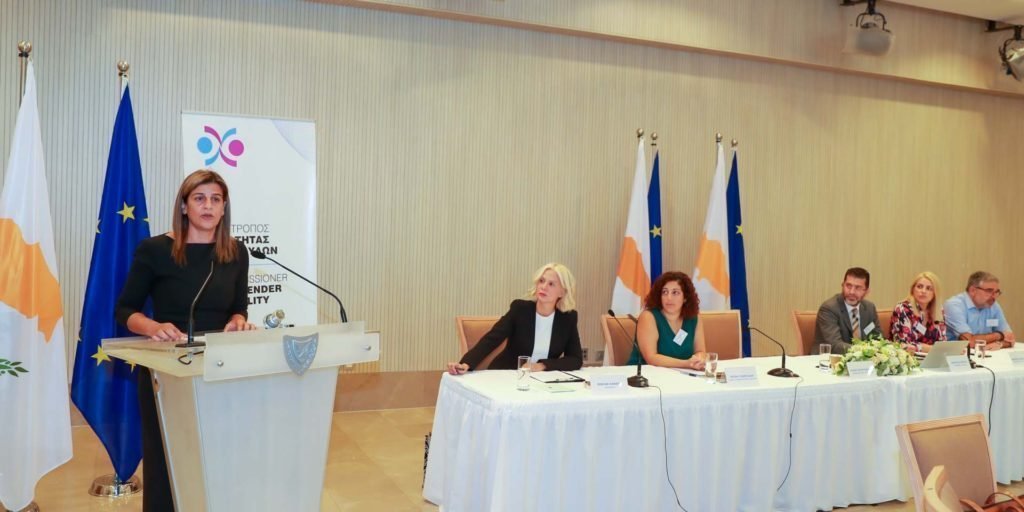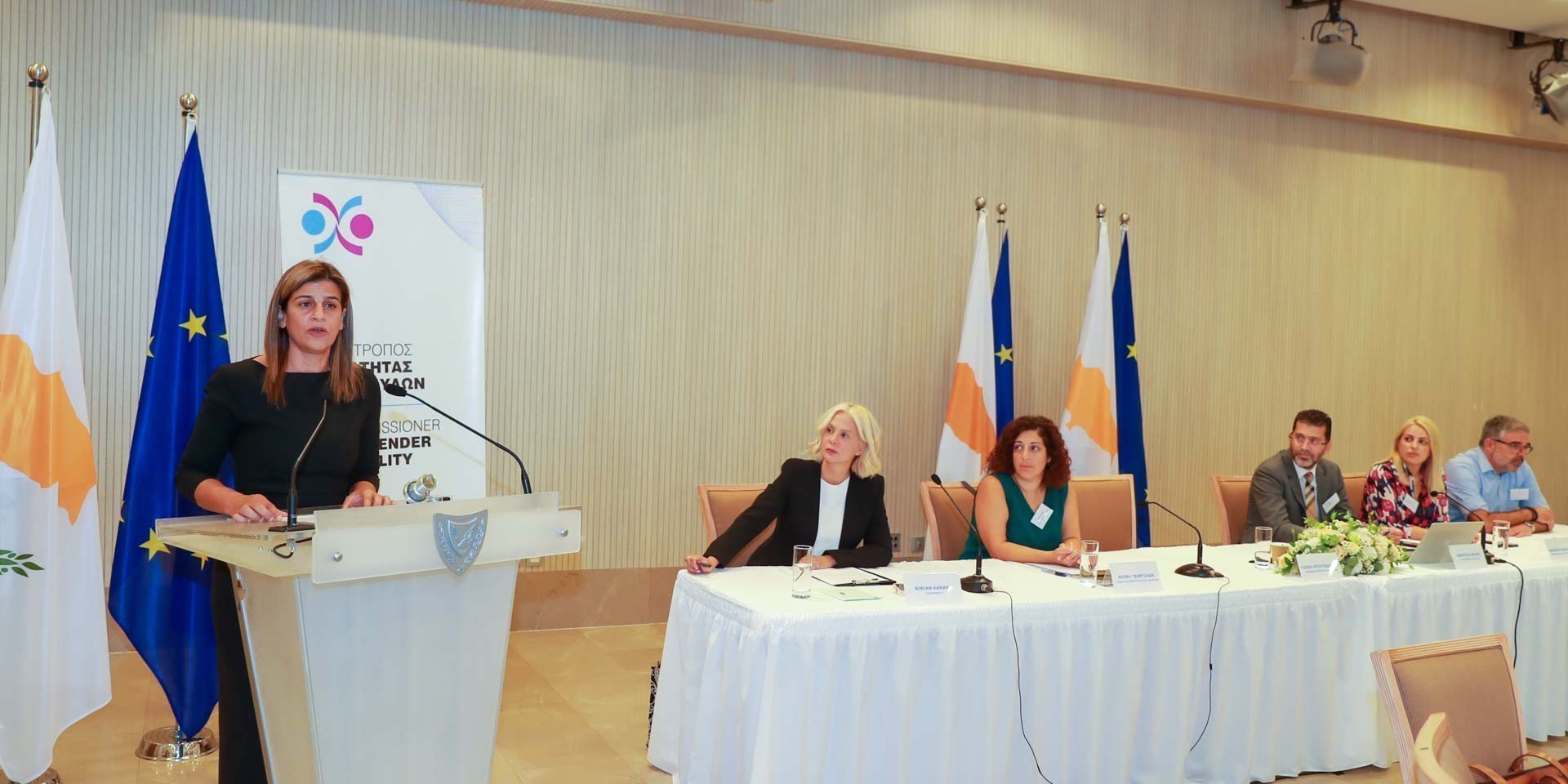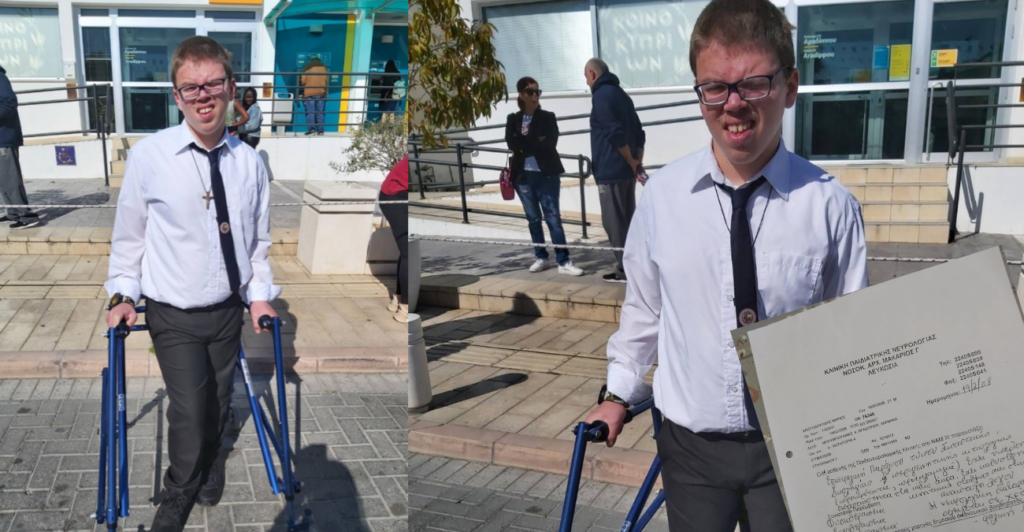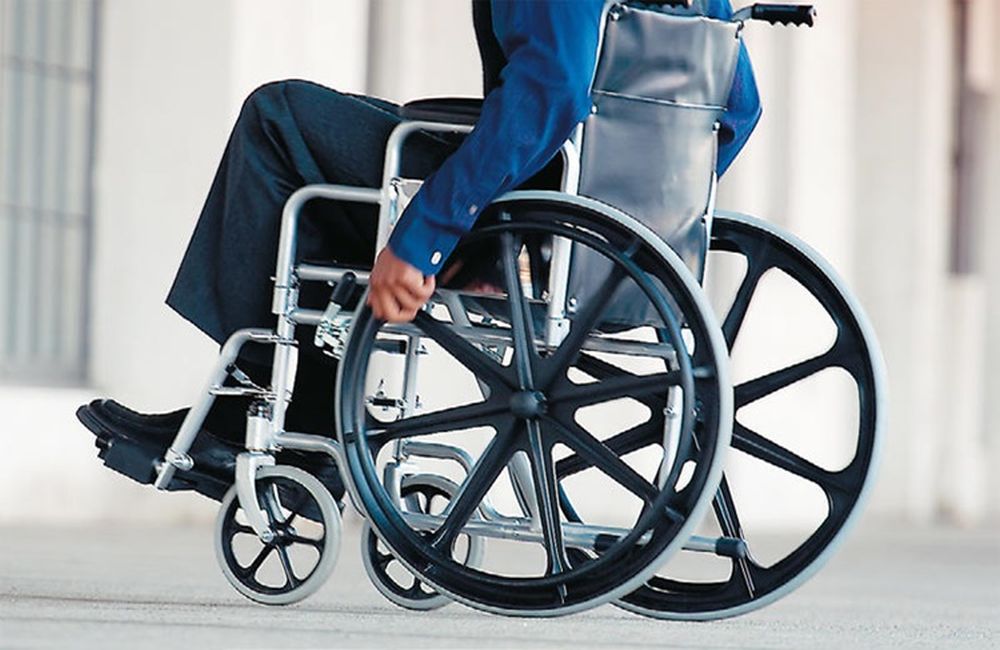
It is with great pleasure that I welcome you to today’s broad consultation, with the exclusive goal of accelerating the promotion of gender equality in our country. Promoting equality between women and men is one of the cross-cutting priorities of the President of the Republic’s governance program and a personal commitment of his own.
We are well aware that the full protection of women’s human rights is an important issue and a prerequisite for the social and economic development of all countries. Gender equality means that the needs and human rights of both women and men should be considered equal, as should their responsibilities. Women and men have biological differences that should be taken into account when planning legislation, policies, actions, and measures, while at the same time, women and men should participate equally in decision-making processes, free from gender-based stereotypes and biases.
Through a comprehensive approach, the goal is to promote the active participation of women in public life, creating a gender-inclusive political, economic, and social framework, an environment that is friendly and welcoming to women and men alike. To achieve this goal and create the necessary conditions in all areas, targeted actions and policies are being developed, and the tool of gender mainstreaming is being utilized in government policies and actions.
At the same time, equal distribution of responsibilities in the care economy is promoted, active participation of women in the labor market and decision-making positions, and the strengthening and creation of new structures to facilitate parenting. Toward this direction, actions are being designed and implemented to embed the culture of gender equality and to break down outdated stereotypes and biases.
At the same time, gender equality is achieved using different tools and at different rates. It is recognized that the horizontal integration of the gender dimension into a country’s policies contributes to the establishment of equality between men and women, as gender is taken into account in the planning and shaping of legislation, policies, actions, and measures. Any policies, actions, and initiatives cannot be successful if the views of civil society, all of you, experts, and collaborators are not considered.
However, gender equality is entrenched through different means and at different rates. It is recognized that the horizontal integration of the gender dimension into the policies of a state contributes to the establishment of gender equality, as gender is taken into account in the planning and shaping of legislation, policies, actions, and measures. Any policies, actions, and efforts in this regard are influenced by external factors such as global crises and demographic shifts. Global economic crises and challenges, such as Russia’s invasion of Ukraine and the COVID-19 pandemic, have further highlighted gender inequalities:
During the pandemic, social roles attributed to women and men have become even more evident, with women, for the most part, juggling family/personal life and professional life from home, often at the expense of their personal time. Simultaneously, there has been a significant increase in cases of domestic violence against women during the same period. The Russian invasion of Ukraine highlighted the different needs of women and children refugees, an increase in sexual violence, and the trafficking of women and children for sexual exploitation. At the same time, the climate and energy crisis affects men and women differently, and the equal participation of both genders in decision-making centers to address these issues is crucial. However, in the realm of gender equality, there are no “us vs. them, we vs. they.” Gender equality, or rather gender inequality, is a global issue, and we should all be united in this struggle. It’s important to emphasize that the promotion of equality is not the problem; it’s the solution, and multilateralism plays a critical role in this direction.
In this context, the establishment of a culture of gender equality is a fundamental priority and an urgent goal of our Office, which is being strengthened and enhanced. Among other tasks, it is responsible for preparing and coordinating the new Strategy for Gender Equality 2024-2026 in collaboration with all ministries and deputy ministries. Our mission is complex and certainly not easy. Changing mindsets requires persistence and a strategic effort, which we all contribute to. The incorporation of gender dimensions into foreign policy is required for this reason.
In this context, I would like to mention specific institutional reforms. On March 28, 2023, the President of the Republic, during an event on International Women’s Day, referred to the establishment of the Office and its strengthening.
We are currently working on a draft law for the establishment of the Office, while recognizing the longstanding contribution of the National Mechanism for Women’s Rights and its members. We are in consultations to ensure its integration. The Office has also been strengthened with human resources.
By decision of the Council of Ministers, the Office of the Commissioner for Gender Equality, in collaboration with all ministries and deputy ministries, is authorized to prepare, monitor, and evaluate the implementation of the new Strategy for Gender Equality 2024-2026. The goal of the strategy is to integrate the gender dimension into the policies and actions of all ministries and deputy ministries. To achieve better coordination, gender equality officers have been appointed in each ministry and deputy ministry. They are professionals who share our vision and want to be part of this effort, so that together we can accelerate the promotion of gender equality. I would like to take this opportunity to thank all the officers, collaborators, and colleagues for our excellent cooperation and for sharing our vision. With the above, dear friends, we are laying the institutional foundations to move forward with coordinated actions within the scope of our Office.
Allow me to refer to some specific policies and actions that have already been implemented by the Office in the last seven months:
– Zero VAT rate on women’s hygiene products. This is a significant development as these products are essential, not luxury items.
– Our efforts, in collaboration with the Minister of Transport, Mr. Vafeiadis, the President of the Licensing Authority, Mrs. Amerikanou, and the unions SEK, PEO, and DEOK, to address the issues faced by female bus drivers. As a result of our consultations, 40 women have expressed interest in returning to the profession.
– New collaborations with the Cyprus Basketball Federation through the signing of a memorandum of understanding that covers, among other things, training for coaches on gender equality in sports.
– Actions that have begun in collaboration with KEVE for promoting gender equality in the workplace and closing the gender pay gap.
– The re-establishment of the Gender Mainstreaming Unit at the Ministry of Foreign Affairs, led by Ambassador for Equality, Ms. Koula Sofianou.
I would also like to mention the appointments made by the President of the Republic, which demonstrate the importance placed on gender equality. The representation of women stands at 46.1% in the first appointments of the Government, while in the Council of Ministers (Ministers/Deputy Ministers), the percentage reaches 41.17% for the first time.
Furthermore, after consultations with the President of the Union of Municipalities, 29 municipalities have appointed gender equality officers, which I note with great satisfaction, as it strengthens the cooperation of our Office with local government. With our support, they are progressing with an annual action plan for gender equality, featuring a small number of actions that are, however, substantial. For example, the creation of a breastfeeding room equipped with a refrigerator for storing breast milk at municipal offices, adequate lighting in municipal parking lots and parks owned by communities to enhance the sense of security, especially during the evening hours, the establishment of parking spaces in municipal theaters for families with infants and strollers, as well as facilities for baby care (diaper changing) in men’s restrooms.
Beyond the above, we have initiated the creation of an electronic library on gender equality issues and the history of the women’s movement in Cyprus. For years, I have observed that our history has been shaped through the eyes of men. This is obviously due to the historical positions held by women and men in our society and the fact that access to public spaces was mainly enjoyed by men. Many studies and research have been conducted, we have testimonies of women, and we know about the women’s movement through narratives, which, although documented, have remained in “invisibility.” With the electronic library, the goal is to have the material gathered in one platform that is easily accessible to interested individuals. Through this effort, we will also support the Minister of Education, Youth, and Sports, Ms. Michailidou, in her new project to modernize history books so that our children are aware of the enduring contribution of Cypriot women.
All of the above contribute to making equality the norm. I have no illusions that in the coming years we will eliminate the inequalities, which, I want to emphasize, have almost entirely disappeared legally. However, we can accelerate the promotion of gender equality and the consolidation of a culture of equality through holistic, cross-cutting actions that are practical and aimed at substantially improving the lives of our citizens and our society.
As most of you may know, I have been an active member and part of civil society for many years. With most of you present here today, I have collaborated, participated in protests, engaged in intense discussions with government officials of various administrations, and actively contributed to the promotion of equality in our country, in the European Union, and at the international level. I understand the importance of participation and democratic processes. Recognizing this importance, I am well aware of what it means to give space and a voice to groups in society when decisions that concern them are being made, as is the case with the Gender Equality Strategy.
With this as my basic principle and based on the ministerial decision authorizing our Office to prepare the new strategy in collaboration with ministries/deputy ministries, within the framework of the international and European obligations of the Republic of Cyprus, it is important to take into account the ideas and suggestions of all of you. Together with the gender equality officers, we have already prepared the framework and guiding principles, and today we are discussing with you, recording your views and suggestions, along with actions and measures that you believe can be implemented to shape the new strategy. Always within the framework of fiscal discipline, our goal is to create a workable strategy over a three-year period, which can be revised and which will include a few but targeted actionable items. The aim is to have a positive impact on the lives of all by empowering women. This strategy will be a document resulting from the collaboration of the state with you, the broader civil society.
Allow me also to address some of your concerns regarding the content of the strategy, such as the absence of a working group for violence against women, women, peace, and security, or working groups for women with specific vulnerabilities. As you already know, there are relevant action plans for violence against women and domestic violence, as well as the coordinating body under the Ministry of Justice and Public Order, and the action plan for the implementation of Resolution 1325, which is coordinated by our office and has a separate budget for related actions. To avoid repetition, such actions will not be included in the new strategy. As for immigrant women, women with disabilities, we consciously did not include them as groups of vulnerable women, as we want actions related to these specific groups of women to be integrated horizontally across all pillars (transportation, employment, social policy, foreign policy, etc.). For this reason, representatives/experts for the above are among us. If, of course, during our discussions in the working groups, you believe that a separate pillar should be created, we are ready to discuss, record, and make a relevant decision.
AI will not tire of reiterating that accelerating the promotion of gender equality is imperative. Our goal is to integrate the gender dimension into all ministries and sub-ministries in practice. To make gender equality a norm. By translating words into actions, a new effort is being made, applying a participatory and inclusive approach to the preparation of the new National Strategy for Gender Equality.
We have the opportunity, dear friends, but also the responsibility, to accelerate efforts to promote gender equality.
(BA/AF/ES)
Source: Press and Information Office













